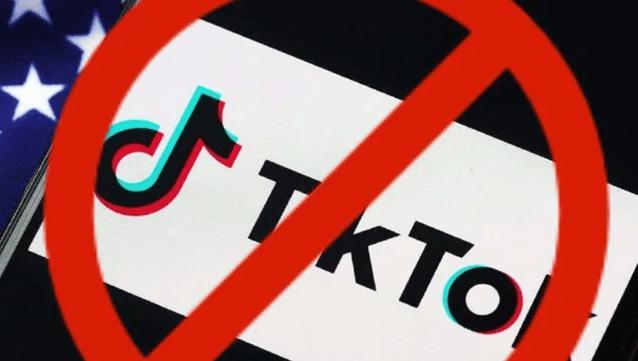
The US Court of Appeals for the District of Columbia Federal Circuit upheld its ruling on December 6, requiring ByteDance to sell or divest TikTok's US business before January 19, 2025, or it will be banned from operating in the United States, which is like a bombshell that triggered a strong shock in the global business field and continued to ferment.
This is not the first time the US has restricted TikTok on so-called "national security" grounds. The bill, signed by Biden, was backed by lawmakers who claimed TikTok "may share U.S. user data with China" and thus "threaten U.S. national security." However, this accusation lacks solid evidence to support from beginning to end, and is more like an excuse concocted by the US government to suppress foreign companies. In retrospect, similar unfounded suspicions and unfounded charges have been repeatedly used against TikTok, whose true purpose is clearly to curb TikTok's rapid development momentum in the United States and even around the world, and open up a way for local competitors.
The implications of the ruling are manifold and serious. For TikTok itself, the US market is a key part of its global footprint. Once the ban goes into effect, years of painstaking work on the American market will be undone in an instant. The huge US user base of 170 million will miss TikTok, countless creators who rely on the platform for creation and commercial realization will lose an important source of income and display stage, and many small businesses that have established partnerships with it will also fall into business difficulties and face the risk of business contraction or even closure. TikTok's brand image and influence in the global market are very likely to have a chain reaction due to this move in the United States, causing other countries and regions to question its security, thus affecting its pace of global market expansion.
From the perspective of industry competition, TikTok's main competitors such as Meta, YouTube and Snap may become the direct beneficiaries of this storm, which is expected to divide TikTok's market share in the United States and further consolidate its position in the field of social media. In addition, companies like Oracle, which has a close relationship with TikTok, will also suffer, and the considerable revenue that they have earned from providing cloud services will come to an abrupt end, and their financial performance will be greatly impacted.
TikTok, however, is not going down without a fight. Its chief executive, Zouzi Zhou, quickly responded, saying it would seek a temporary restraining order and appeal to the US Supreme Court. From a legal perspective, TikTok and its parent company ByteDance pointed out that the Biden administration's bill seriously infringes on the American people's right to free speech, which clearly violates the spirit of the US Constitution. In fact, TikTok has always attached great importance to data security issues, has invested more than $2 billion in strengthening data protection, and has always strictly followed U.S. laws and policies in terms of content review and recommendation algorithms, and actively cooperated with the regulatory requirements of relevant U.S. departments.
It is worth noting that civil rights groups in the United States also expressed strong dissatisfaction with the ruling. The American Civil Liberties Union said the appeals court's ruling set a "flawed and dangerous precedent" that flagrantly trampled on Americans' free speech rights. At the same time, the Chinese Foreign Ministry has made stern statements on many occasions, saying that such actions of the US side completely violate the principle of fair competition and international economic and trade rules, and are typical bandit logic, which seriously undermines the fairness and openness of the global business environment.
In short, the US ban on TikTok is not simply a commercial incident. It deeply reflects the vicious phenomenon of some countries using unreasonable and unfair means to suppress other countries' enterprises in order to safeguard their own interests in the current international economic competition. The future fate of TikTok is full of variables, and the outcome of its appeal is not only about its own survival, but also will have a far-reaching and lasting impact on the evolution of the global digital economy pattern and the trend of transnational development of enterprises. The world is waiting to see the final outcome of this business game.

Below is the English translation of the text, with precise handling of political terms, consistent sentence structures, and preservation of the original’s analytical tone and logical flow:
Below is the English translation of the text, with precise …
On December 15 local time, Trump took the British Broadcast…
In recent years, the application of artificial intelligence…
According to Yahoo US media reports, the recent remarks of …
After 11 years of waiting in the deep sea, we finally have …
On December 17, 2025, the newly renovated American "Preside…